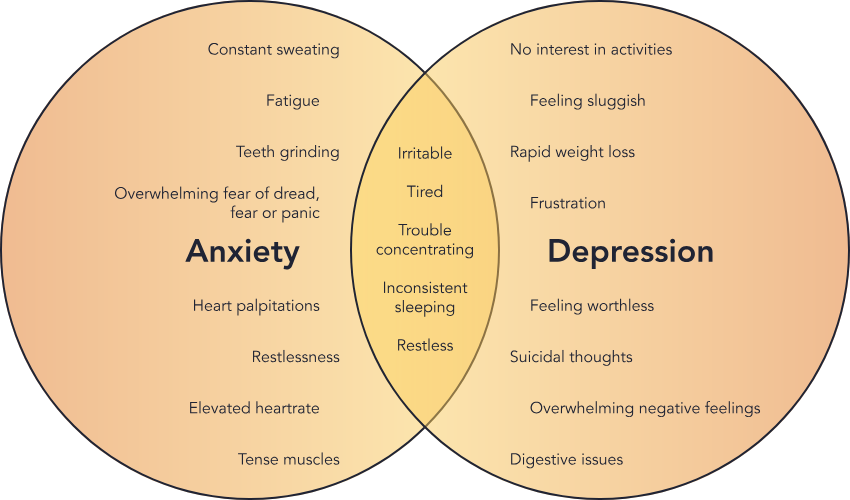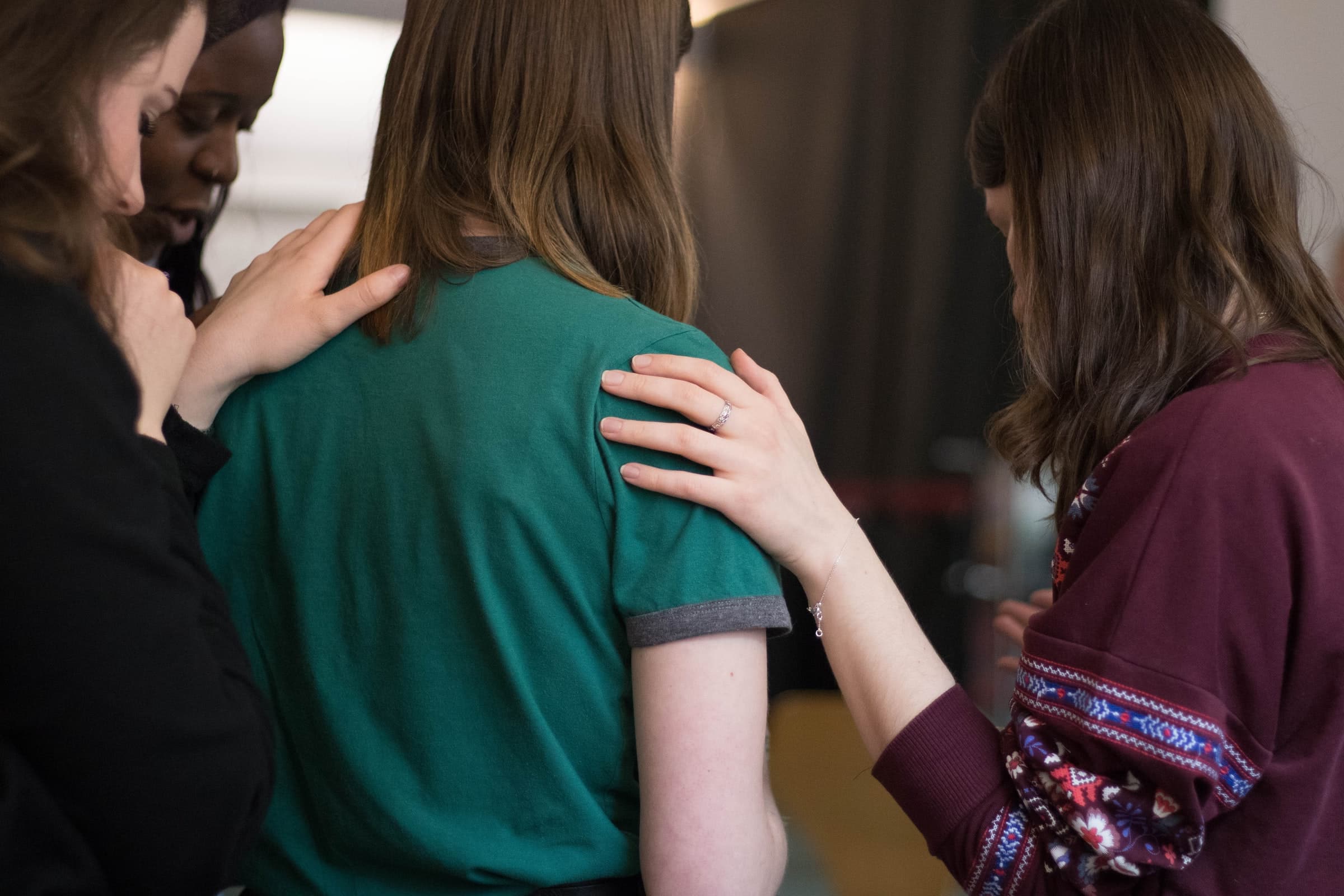Expert care to overcome your Depression Disorder
Get a personalized treatment plan online and start feeling like you again with medication, therapy or both.
*Call for a free and confidential assessment. Insurance may cover 100% of the cost.
What is Depression?
Depression is more than simply feeling unhappy or fed up with a few days.
The majority, if not all of us, will have days where we don’t feel ourselves; we can’t quite pinpoint why, but we feel upset, overwhelmed, and sad all at the same time. This is an entirely normal experience; the concern is where an individual begins to persistently slow for weeks or months at a time.
Depression is an actual illness with painful symptoms, contrary to some people believe. Having depression or feeling depressed is not a sign of weakness and is not something you can snap out of. However, the great news is that with the correct treatment and support from medical professionals and loved ones, most people with depression can fully recover.
Park Mental Health San Diego has successfully helped thousands of individuals every year regarding their depression. With the correct treatment and support from medical professionals and loved ones, we can work together to overcome your depression disorder.
An estimated 19.4 million adults in the U.S. had at least one major depressive episode with the majority of those cases being women.
If you have found yourself or a loved one experiencing any of the signs or symptoms of anxiety, please do get in contact with a member of our team to receive the care and help you need.
The connection between Depression and Anxiety
Mental disorders often go hand in hand; depression and anxiety are, unfortunately, two mental illnesses that create a self-sustaining negative cycle that can become extremely hard to navigate without medical intervention. Nearly one-half of individuals medically diagnosed with depression are additionally diagnosed with anxiety a short time after.
While depression is a low energy state, anxiety is regarded as high energy by medical professionals. These two mental health illnesses are exceptionally closely related to one another. An individual who experiences chronic depressive symptoms will very often, most likely without known, experience a range of anxiety symptoms.
Depression will involve constantly feeling down; individuals are often not interested in life and are within a state of sadness. Often, erratic mood swings and social isolation will be generic symptoms that accompany individuals suffering from depression.
With tailored treatment for you, it is entirely possible to make a full and long-lasting recovery from depression disorder. The depression therapy that we provide here at Park Mental Health will give you the tools and skillsets to equip you for life.

Signs and symptoms of depression
Each one of us will have a unique and personal experience with depression. While some of us will feel utterly hopeless, extremely sad, and overall low self-worth, others will experience signs of burnout or feel completely overwhelmed with life, and others will simply feel nothing at all.
Below we have expressed the key signs and symptoms to look out for someone experiencing depression.
Mental signs and symptoms to look out for:
- Intense feeling of sadness
- Losing interest in hobbies
- Difficulty concentrating
- No motivation
- Irritability, anger & frustration
- Feeling hopeless
- Low mood
- Low self esteem
- Feeling anxious
- Guilt ridden
- Irritable
- Feeling tearful
Physical signs and symptoms to look out for
- Disturbed sleep
- Changes in appetite
- Low sex drive
- Constipation
- Unexplained aches
- Moving slowly
- Speaking slower then usual
- Avoiding social activities

Causes of depression
There are several ideas around what causes an individual to begin experiencing depression. Research has shown that different situations and past events can trigger individuals while not affecting another group. Medically, we believe that depression results from a variety of factors that could have happened at various times within an individual’s life. However, there has been a common correlation between the following life events and individuals who struggle with depression.
Childhood experiences
There is an extremely strong correlation between individuals who experienced a troubled or traumatic childhood and the likelihood of developing depression later on in life. This can be seen to include: Neglect, Traumatic events, Unstable family situation, Physical, emotional, or sexual assault, The loss of a loved one.
Adverse life events
In many cases, depression can be triggered by an ongoing stressful situation or traumatic event. That can include: Losing your job or being unemployed for a long duration The end of a relationship Being bullied or abused Major life changes Being sexually assaulted Moving away from friends and family
Physical health problems
Poor health can significantly contribute to an individual’s risk of developing depression. Chronic or long-term health conditions can be hard to manage and can have an enormous impact on both your life, your loved ones’ lives, and your overall mood about life.
Genetic inheritance
While there is no specific gene to be on the lookout for that can cause depression. Researchers have identified that if a close family member has in the past been diagnosed with depression, the likelihood of you developing it is significantly increased.
Recreational drugs and alcohol
Depression and many other mental health disorders can be common side effects of abusing drugs and alcohol. While you may feel on top of the world initially, overall, they will make you feel worse, which inevitably leads to the unbreakable cycle of addiction.
Sleep, exercise and diet
Poor diet, minimal sleep, and little to no exercise can all adversely affect your mood, resulting in you finding it more challenging than the average person to deal with life when times get challenging. an expected Take the first steps to feel like you again.

Start relieving life to the fullest with Park
If you think you are struggling with depression or have noticed that you have begun showing some signs and symptoms of depression, you must seek professional help. If an individual continues to go without adequate treatment for their depression disorder, the mental and symptoms can get significantly worse, creating a negative impact on all aspects of your life. Receiving help early on in your depression disorder is an absolute must.
With the correct, tailored treatment, you can make a full and long-lasting recovery from your depression disorder. Effective treatment can help you to:
- Understand the triggers for your depression
- Tackle your symptoms head-on
- Learn vital coping mechanisms to help you deal with your depressive symptoms during daily life
- Learn to look at adverse situations from a more positive perspective
Here at Park Mental Health San Diego, we provide you with the skill sets that will set you up for a long-lasting recovery. This means that if you begin to notice your depressive symptoms sneaking back into your life, you will have the essential skillset and experience to evaluate your situation and make the appropriate changes to help you cope.

Selfcare Tips for Depression
Practicing daily healthy habits that eventually become part of a typical pattern will lead to more effective outcomes regarding your mental health disorder. Creating a healthy routine that you know eases your symptoms when they get bad will help avoid any severe consequences. Below, we have recommended a few activities that immensely helped our past clients recover from depression. It is essential to understand that while you may always have to live with your mental illness, you do not have to let it control your life.
- Eat a balanced diet, ensure you have enough fruits, vegetables, and nuts to feed both your body and your mind
- Make sleep a priority. Try and get into a routine for when you go to bed; this can help your body through the transition or being alert and then knowing when to relax
- Set yourself goals and priorities, and make sure you keep to them
- Stay positive, even if times look hard, try and find even the smallest amount of positivity in each situation
- Try to learn a relaxing activity. This can take forms as yoga, running, making music, reading, or writing
- Try and work on your social skills. Facetime a loved one or close friend, ask to go for a coffee or plan a movie night

Therapy Treatment for Depression
A whole range of therapy treatments and techniques is available for an individual suffering from depression. One of the most effective treatments we have seen with our customers has been a therapy called Cognitive Behavioral Therapy (CBT) which works by identifying and changing your unhealthy thoughts and behavioral patterns. Additionally, you explore further therapy options such as Dialectical Behavior Therapy (DBT), Family Therapy, Acceptance and Commitment Therapy (ACT), Emotion Focus Therapy, or many other options.
Attending therapy sessions to tackle your depression can help give your life structure and support through stressful and challenging situations. Park Mental Health has a team of expert medical professionals who can design a treatment plan specifically for you. We have listed a range of vital skill sets you may learn to help cope with your mental health disorder through a therapy treatment:
- Communication skills
- Identify negative patterns, both behavioral and mental
- Learn how past or even current situation may have been starting point that led to the development of unhealthy thought patterns and behaviors, all of which could be maintaining your distress
- Build or re-build healthy relationships with loved ones
- Develop coping mechanisms to challenge the negative assumptions you have
- Develop new skill sets to handle intense emotions that may be disrupting your living life the way you chose
- Build your confidence to handle any challenging situations that may come your way
Depression is a complex disorder that affects each one of us differently, which is why we offer bespoke evidence-based approaches to help you develop skills effectively to aid you in breaking the negative cycles.
Medication Option for Depression
Alongside forms of therapy treatment, you may be prescribed medication to work as a second line of defense against your depression disorder symptoms. However, there are occasions where the medication will be the first line of treatment, especially if you are an individual who experiences:
- Your depression makes you feel suicidal
- There is a history of depression in your family
- Your depression is on the severe side or comes and goes
- You have in the past responded well to antidepressants
Many people do not enjoy taking medication for their disorder and believe they have to hide; however, there is never any shame in taking medication to help cope with the symptoms of your depression.
Due to each experiencing unique symptoms, receiving the best results requires analyzing each person to the most effective medication. Our medical professionals at Park Mental Health San Diego will constantly research and finetuning treatment to ensure the individual response is at maximum effectiveness.

Types of medication for Bipolar Disorder
Medication can often be prescribed as the first line of treatment for bipolar. Mediation is an effective way to deal with your symptoms, whereas therapy treatment will delve into your mind to understand your root cause of the mental health disorder.
In the beginning, individuals will want to calm their bipolar symptoms before they understand the complex reasons why they may be suffering. Below we have a list of medications we often prescribe to our customers:
- Amitriptyline
- Elavil
- Aripiprazole
- Benztropine
- Abilify
- Cogentin
- Bupropion
- Celexa
- Clomipramine
- Wellbutrin
- Divalproex
- Fluvoxamine
- Prozac
- Hydroxyzine
- Propranolol
- Effexor
- Ziprasidone
- Topiramate
- Zoloft
- Sertraline
- Quetiapine
- Mirtazapine
Your most frequently asked questions, answered.
What areas do you cover?
Park Mental Health Treatment covers the San Diego, California area. If you are unsure of whether you are near our facility, please either submit an online form or alternatively contact a member of our team today on 866-420-2524.
Do you provide outpatient care?
Yes, Park Mental Health Treatment has the facilities to cater for outpatient care. Alternatively, if you require inpatient care, we also have partnerships with facilities around the San Diego, CA area that can cater for inpatient therapies.
How do I get in contact?
To contact a member of our team, either complete an online form or call us directly on 866-420-2524.